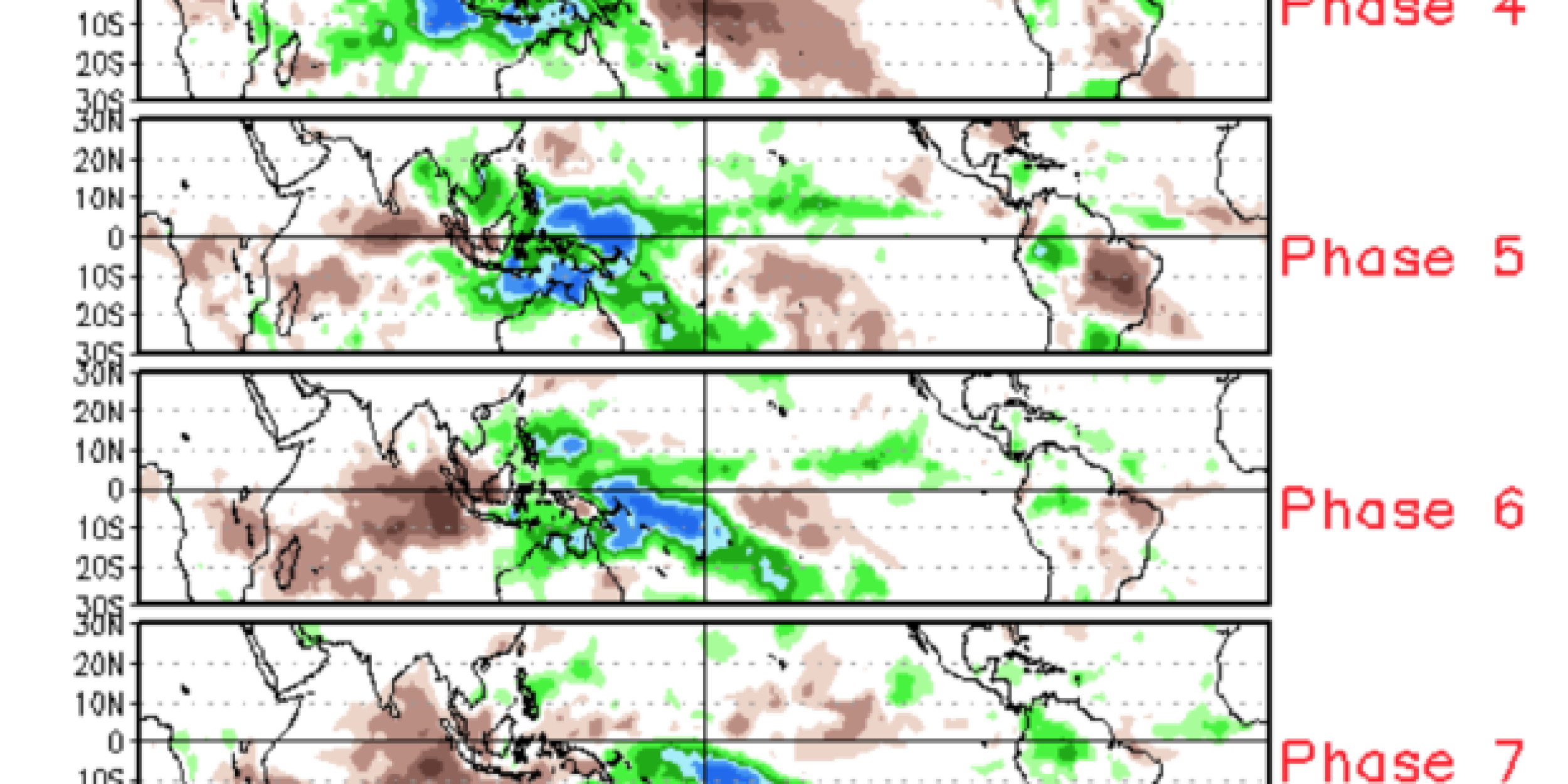The Madden-Julian Oscillation (MJO) creates major shifts in tropical weather on weekly and monthly timescales with impacts around the earth. Distinct from the El Niño Southern Oscillation (ENSO), the MJO can be best described as an eastward moving disturbance with individual phases that impact atmospheric convection, winds, and pressure in the tropics and emanate global disturbances affecting mid-latitude weather. A new Journal of Geophysical Research Atmospheres article by authors C. Zheng and E.K.M. Chang, reveals that the evolution of the mid-latitude impacts of the MJO depends not only on the lag with respect to specific MJO phase, but also critically on the detailed life-cycle of the MJO.
The study examines the role of MJO propagation speed, lifetime, and intensity impacts on the structure and temporal evolution of the MJO extratropical atmospheric response using model experiments and reanalysis data. From this study, it was discovered that for extratropical responses, the MJO has to cycle through specific phases (1-3 and 5-7) and that extratropical responses are strongly dependent on when the MJO initiates and decays. In addition, varying MJO speeds were found to greatly impact extratropical responses in intensity and duration. These results have implications on expected prediction skill and suggest that improved modeling of the heating related to the MJO would lead to improvement in the prediction of the MJO mid-latitude weather impacts.
This study was supported by the Modeling, Analysis, Predictions and Projections (MAPP) Program as part of its S2S Prediction Task Force activities.
—————————————————————————-
About MAPP
The Modeling, Analysis, Predictions, and Projections (MAPP) Program is a competitive research program in NOAA Research’s Climate Program Office. MAPP’s mission is to enhance the Nation’s and NOAA’s capability to understand, predict, and project variability and long-term changes in Earth’s system and mitigate human and economic impacts. To achieve its mission, MAPP supports foundational research, transition of research to applications, and engagement across other parts of NOAA, among partner agencies, and with the external research community. MAPP plays a crucial role in enabling national preparedness for extreme events like drought and longer-term climate changes. For more information, please visit www.cpo.noaa.gov/MAPP.
View More MAPP News.



